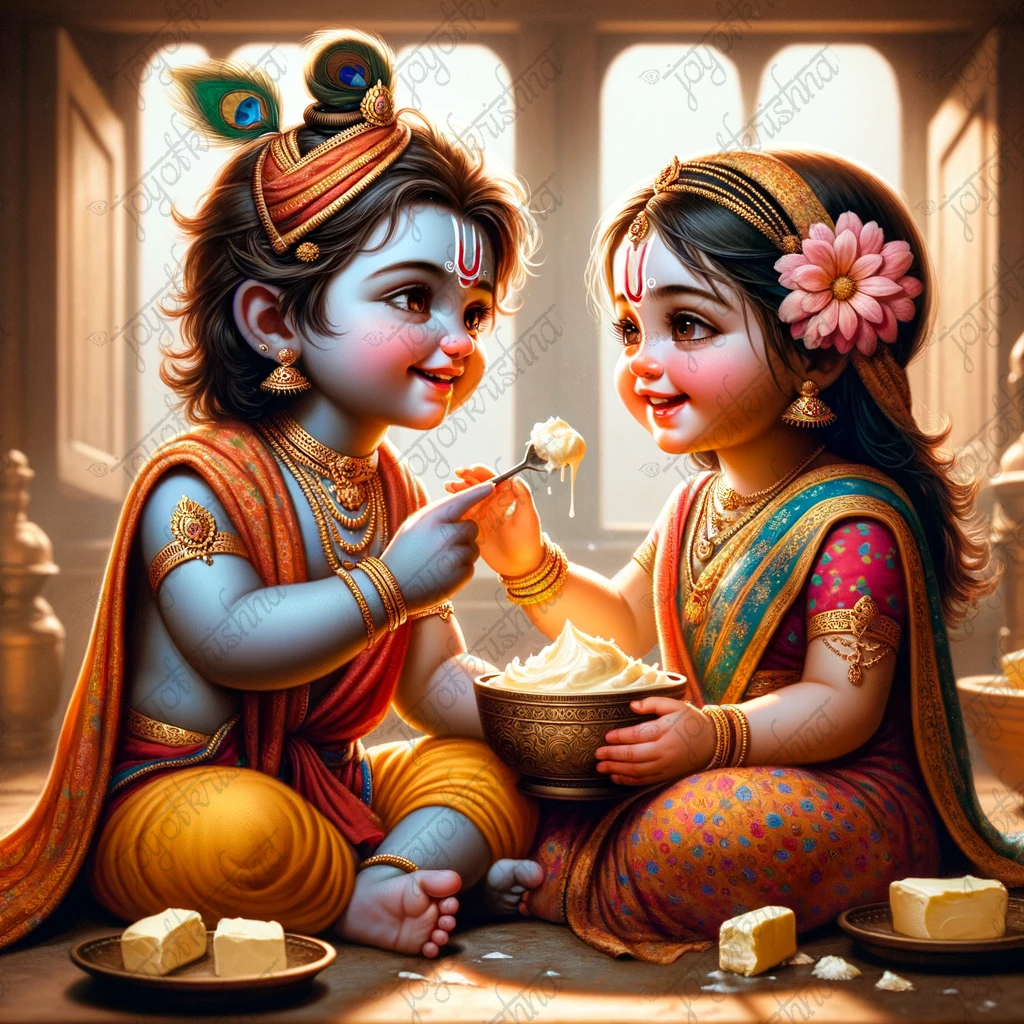
Lord Krishna, the divine prince of India, is one of the most revered and beloved deities in Hinduism. His life and teachings have been a source of inspiration for millions of people for centuries. Born in the city of Mathura, Krishna was the eighth child of Devaki and Vasudeva, a royal couple who were imprisoned by the tyrannical King Kamsa. According to legend, Krishna was born with a divine smile on his face, and his birth was marked by a series of miraculous events, including the collapse of the prison walls and the slaying of the demon king, Putana, who had been sent to kill him.
As a child, Krishna was known for his mischievous pranks and his love of butter and milk. He was especially fond of playing the flute, which became one of his signature symbols. As he grew older, Krishna became known for his bravery and his unwavering commitment to justice. He was a fierce warrior and a skilled diplomat, able to bring people together and resolve conflicts through his wisdom and compassion. One of the most famous stories about Krishna is his role in the Mahabharata, the great epic of India. According to the story, Krishna was the charioteer for the hero, Arjuna, and helped him to defeat the forces of evil in the great battle of Kurukshetra.
Despite his many accomplishments, Krishna remained humble and grounded, always recognizing the divine in all beings. He was a fierce critic of social injustice and worked tirelessly to promote the rights of the marginalized and oppressed. His teachings, as recorded in the Bhagavad Gita, emphasize the importance of selfless action, devotion, and spiritual growth. Krishna’s message is one of love and compassion, and his legacy continues to inspire people of all faiths and backgrounds to this day. Throughout India, Krishna is worshipped in many different forms, from the majestic temples of South India to the vibrant street festivals of North India.
In the city of Vrindavan, where Krishna spent much of his childhood, pilgrims come from all over the world to experience the magic of his presence. The city is filled with temples, shrines, and sacred sites, each one connected to a different aspect of Krishna’s life and teachings. Visitors can walk through the forests where Krishna played with his friends, visit the caves where he meditated, and bathe in the sacred waters of the Yamuna River, where he performed many of his miracles. In the evenings, the city comes alive with music and dance, as devotees gather to sing and dance in praise of their beloved lord.
Krishna’s impact on Indian culture cannot be overstated. He has inspired countless works of art, literature, and music, and continues to be a source of inspiration for artists and creatives to this day. His message of love and compassion has shaped the spiritual landscape of India, and his influence can be seen in everything from the intricate carvings of the temples to the vibrant colors of the street festivals. As a symbol of divine love and wisdom, Krishna remains an integral part of Indian life and culture, a reminder of the transformative power of spirituality and the enduring legacy of a truly remarkable life.
In conclusion, the story of Krishna is a testament to the power of divine love and the human spirit. His life and teachings continue to inspire people of all faiths and backgrounds, offering a message of hope and transformation in a world that often seems dark and uncertain. As we reflect on the life and legacy of this extraordinary being, we are reminded of the importance of compassion, selflessness, and spiritual growth, and the boundless potential that lies within each and every one of us.